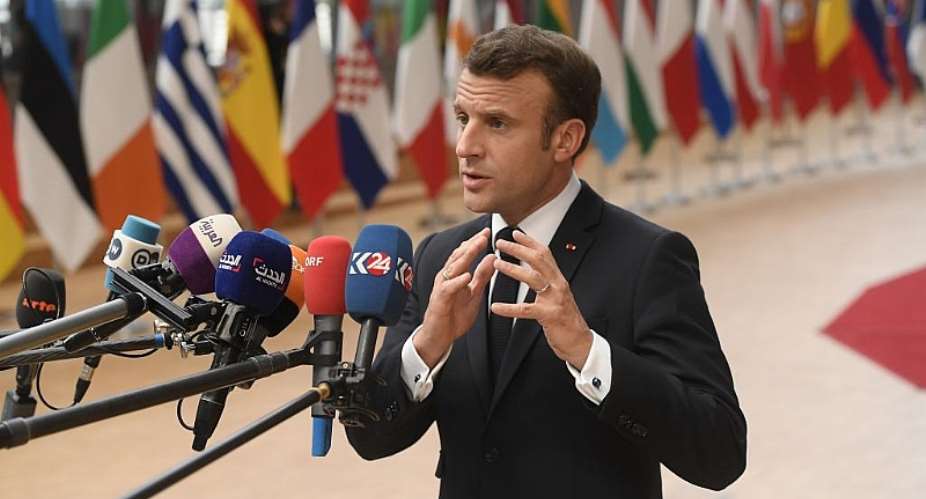European Union leaders are divided over who to appoint to top jobs in the bloc being vacated this year. At a summit in Brussels, on Tuesday, France, Germany and Spain all disagreed over who should lead the European Commission, the EU's executive arm, which proposes legislation, as Jean-Claude Juncker is stepping down at the end of October.
The aim is to name the head of the Commission, and three other top jobs European Council president; foreign policy chief and head of the European Central Bank at a summit in June.
This week's European Parliament elections showed that previous political alliances are changing. The conservative European People's party (EPP), which has been the largest group in the assembly, and the Socialists and Democrats have held a majority in the body for 40 years. But both lost seats in this election, and as a result have lost the ability to hold a majority together.
Voters turned instead to far-right parties, the Greens or the pro-business ALDE group. As a result, it is unclear what majority will emerge in the assembly when lawmakers gather in July, which adds to the uncertainty of who to appoint as leaders.
Usually the head of the Commission is chosen from candidates put forward by the parliamentary blocs. But French President Emmanuel Macron wants EU leaders to decide.
Macron said the vote results show that “we cannot just repeat the old habits”.
No clear choice
German Chancellor Angela Merkel described Tuesday's summit as "good and harmonious". She is supporting Manfred Weber, who has since 2014 led the EPP, which suffered major losses at the polls.
Macron, whose party has joined the centrist ALDE group, is building support for a progressive candidate. He suggested Margrethe Vestager, a Danish politician who is currently the EU's competition commissioner, or Michel Barnier, who has led the EU's negotiations with the United Kingdom over Brexit.
Spanish Prime Minister Pedro Sanchez is supporting the Socialists' candidate, Frans Timmermans, a former Dutch foreign minister and currently Juncker's right hand man at the commission.
Women at the helm
Macron said he expected the nominations to be “even handed”, and that it was important to have a gender balance, with two of the top jobs held by women.
"It is important to me that these nominations have parity,” he said, noting that there must "be balance in terms of political leanings and in terms of geography."
Other leaders, too, said the aim is to have two women in top posts.
The president of the European Council, Donald Tusk, is now tasked with drawing up a list of nominees for Commission head which could be supported by a majority of leaders at the 21 June summit. Without consensus, the decision could be dragged out, as happened in 2014, when it took several summits to agree on all the top jobs.





 Tuesday’s downpour destroys ceiling of Circuit Court '8' in Accra
Tuesday’s downpour destroys ceiling of Circuit Court '8' in Accra
 SOEs shouldn't compromise on ethical standards, accountability – Akufo-Addo
SOEs shouldn't compromise on ethical standards, accountability – Akufo-Addo
 Father of 2-year-old boy attacked by dog appeals for financial support
Father of 2-year-old boy attacked by dog appeals for financial support
 Jubilee House National Security Operative allegedly swindles businessman over sa...
Jubilee House National Security Operative allegedly swindles businessman over sa...
 Nobody can order dumsor timetable except Energy Minister – Osafo-Maafo
Nobody can order dumsor timetable except Energy Minister – Osafo-Maafo
 Mahama wishes National Chief Imam as he clock 105 years today
Mahama wishes National Chief Imam as he clock 105 years today
 J.B.Danquah Adu’s murder trial: Case adjourned to April 29
J.B.Danquah Adu’s murder trial: Case adjourned to April 29
 High Court issues arrest warrant for former MASLOC Boss
High Court issues arrest warrant for former MASLOC Boss
 Align academic curriculum with industry needs — Stanbic Bank Ghana CEO advocates
Align academic curriculum with industry needs — Stanbic Bank Ghana CEO advocates
 Election 2024: We'll declare the results and let Ghanaians know we've won - Manh...
Election 2024: We'll declare the results and let Ghanaians know we've won - Manh...
